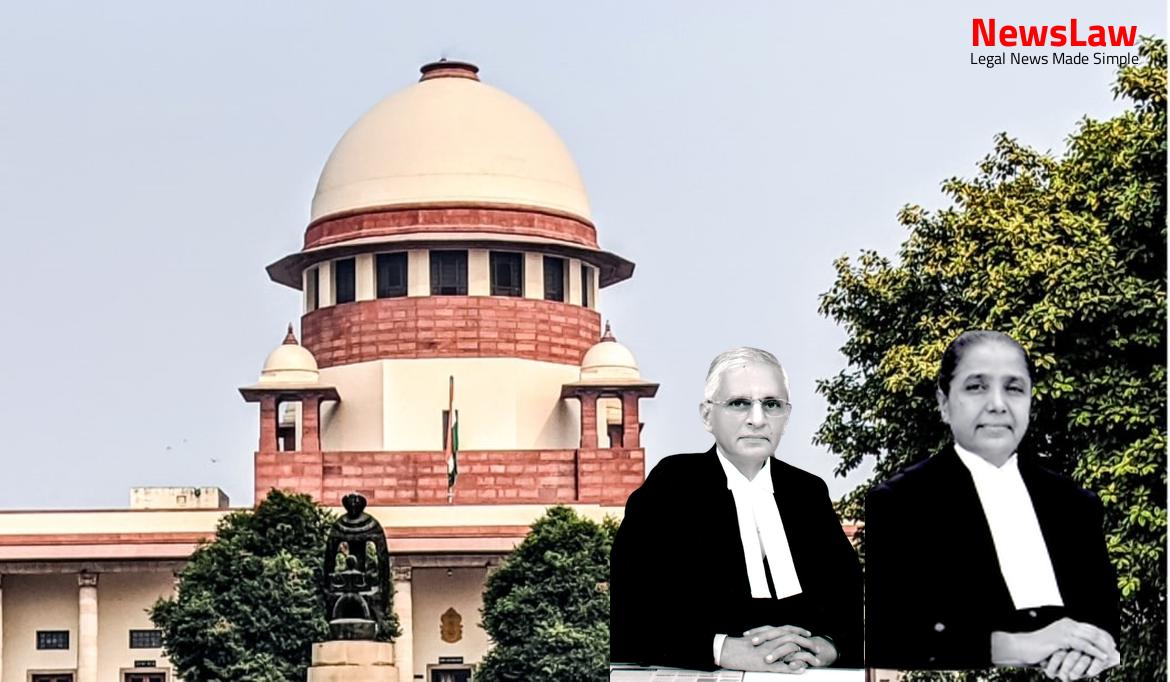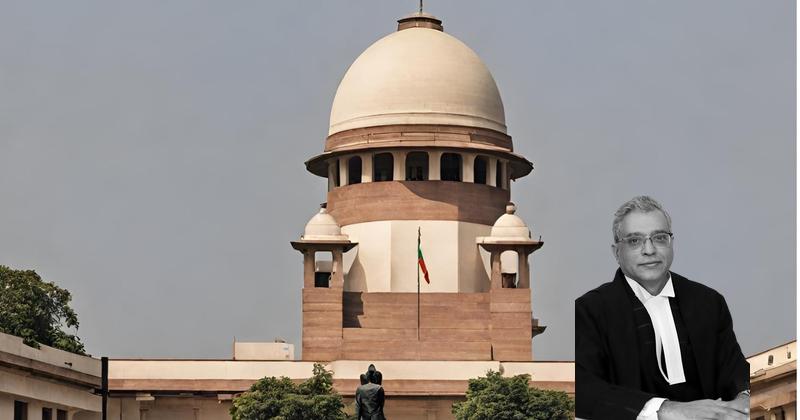Explore the court’s in-depth legal analysis and decision regarding the quashing of a criminal proceeding in a SARFAESI Act case. The case delves into intricate details of the law and highlights the importance of understanding legal remedies available to parties involved. Stay tuned to unravel the complexities of the legal system and its impact on this particular case.
Facts
- The auction proposed on 15.11.2013 was postponed to 04.12.2013 due to no bids received and it being a public holiday in Karnataka.
- The application for condonation of delay and the main application were dismissed by the Debts Recovery Tribunal on 12.06.2015.
- An FIR No.0152/2016 was registered based on the direction given.
- Canara Bank revised the valuation and set the reserve price at Rs.1.10 Crore for the auction as the earlier price did not attract buyers.
- The appellants filed a Criminal Petition under Section 482 of Cr.P.C, which was dismissed by the High Court on 21.01.2019.
- The Complainant also filed a writ petition challenging the auction notice before the High Court of Karnataka.
- The secured asset, the property in question, was taken possession of as per SARFAESI Act Section 14 on 22.03.2013.
- The auction for the secured asset took place on 15.11.2013 with a reserve price of Rs.2,28,51,000/-, but no bids were received.
- The appellants were involved in various legal proceedings related to the actions taken by Canara Bank and the auction of the secured asset.
- The Complainant’s loan was classified as ‘Non-Performing Asset’ on 15.01.2013 due to defaults in repayment.
- The property used as security for the loan was situated at Anchatageri Village in Hubballi.
- The Single Judge considered the contentions of the Complainant
- The Single Judge also noted the availability of an alternate remedy under the SARFAESI Act
- The writ petition was dismissed with a cost of Rs.10,000/- on 22.01.2014
Also Read: Liability for Employee Actions in Contractual Disputes
Arguments
- The appellants’ counsel argues that they had no role in the loan transaction and should not be held criminally liable.
- Issues related to under valuation of mortgage property, non-disbursement of entire loan, and non-consideration of OTS offers are mentioned as aspects requiring investigation.
- Reference is made to a court decision regarding defense of good faith and public good needing to be proved with evidence.
- The complainant is criticized for resorting to criminal law after failing in civil remedies under SARFAESI Act.
- The rejection of the petition by the learned Judge was questioned on the basis of similarity with other dismissed petitions.
- The dispute regarding the secured asset valued at over Rs. 4 Crores led to the registration of the FIR.
- The appeal by the appellants is contended not to merit consideration and is liable to be rejected as the Complainant had approached Canara Bank for financial assistance wherein the appellants were Officers in the Circle Office.
- The State of Karnataka’s counsel contends that the FIR was pursued as per the magistrate’s direction and the investigation is in progress.
- Referring to the case of State of Haryana vs. Bhajan Lal (1992) Supp (1) SCC 335, the court stresses the need to exercise the power of quashing a criminal proceeding very sparingly and in rare cases.
- Considering the nature of the transaction and previous proceedings on the same subject matter, the situation at hand needs to be evaluated.
- The loan availed by the Complainant was for Rs. 2.68 Crores in 2009, and the investigation is ongoing and should be allowed to reach its natural conclusion.
- Allegations about the non-consideration of the OTS, the value of the property sold, and the manner of the sale under the SARFAESI Act can be investigated by the police, even if certain sections of the Indian Penal Code are invoked.
- Despite the grievances regarding the auction sale conducted in 2014, the complaint was not filed immediately after the sale.
- While the Complainant claims only Rs. 90 lakh was released instead of the full amount, the question arises about the remaining balance and other pertinent aspects.
Also Read: Supreme Court Upholds Rejection of Plaint Under Order VII Rule 11 of CPC: A Critical Analysis
Analysis
- The SARFAESI Act provides a procedure for the secured creditor and remedies for aggrieved parties.
- The DRT has the power to set aside auctions if discrepancies are found in the process.
- The police investigation in the case was deemed unnecessary and an abuse of legal process.
- The High Court had previously dismissed writ appeals related to the case.
- Provisions like Section 32 of the SARFAESI Act provide immunity from prosecution for actions taken in good faith.
- The DRT can question actions taken by the secured creditor and has the authority to set aside transactions and restore possession in certain cases.
- The court may invoke extraordinary power in certain instances, as in the present case.
- Attempts to auction the property had previously been unsuccessful, leading to a new auction with a lower reserve price.
- Section 13 allows secured creditors to take possession of secured assets, as well as take over the management of the borrower’s business.
- Secured creditors have the right to transfer assets by lease, assignment, or sale, subject to conditions mentioned in the provisos of Section 13(4)(b).
- Checks and balances in Section 17 prevent misuse of powers and prejudice to the borrower due to errors by banks or financial institutions.
- Any person, including the borrower, aggrieved by actions under Section 13(4) can seek recourse under Section 17.
- The learned Single Judge considered the SARFAESI Act and the decision in the case of United Bank of India vs Satyawati Tondon & Ors. while making the decision.
- Criminal proceeding not sustainable in the present case
- Exposing appellants to proceedings before Investigating Officer or criminal court not justified
- Proposition of law as enunciated applies to the proceedings under SARFAESI Act
Also Read: Validity of Debt and Enforcement of Section 138 NI Act
Decision
- The complaint bearing P.C. No.389/2016 and the order dated 20.05.2016 are quashed for the appellants.
- The FIR No.0152/2016 for the appellants is also quashed.
- The complainant is free to pursue legal remedies concerning the order dated 12.06.2015 in I.R. No. 3044/2014 and the order dated 31.05.2017 in Appeal No. 523/2015.
- The appeal is allowed with no costs imposed.
- Any pending applications are also disposed of.
Case Title: K. VIRUPAKSHA Vs. THE STATE OF KARNATAKA (2020 INSC 261)
Case Number: Crl.A. No.-000377-000377 / 2020



